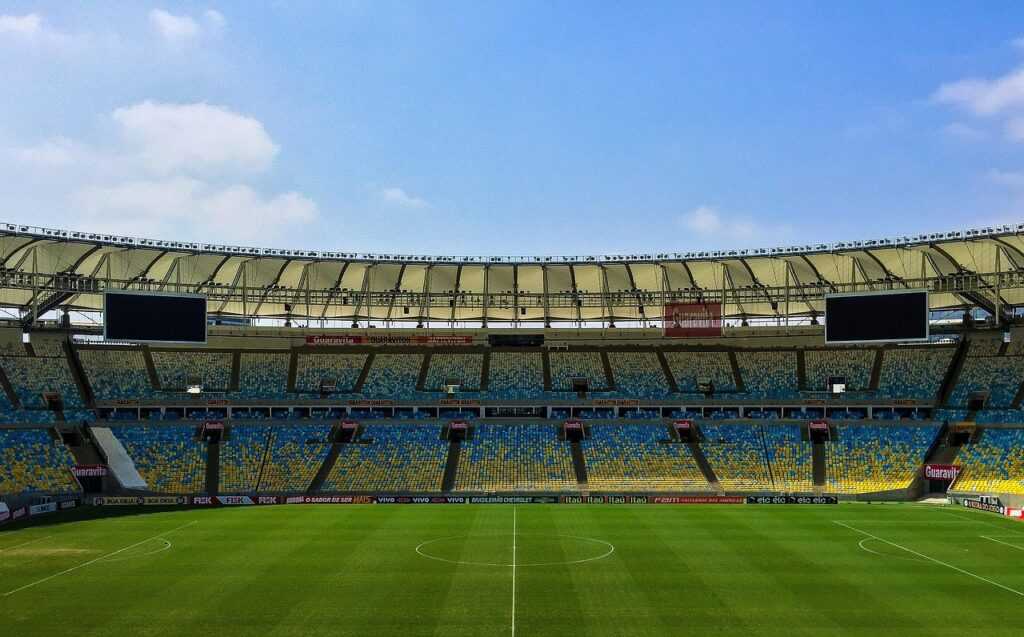The Historical Context of Sports in Diplomacy
Sports have played a pivotal role in diplomacy for centuries, serving as a bridge between nations and fostering global relationships. Significant events highlight how sports have been instrumental in peace and diplomacy.
Ancient Olympics and Peace
The Ancient Olympics, dating back to 776 BC, embodied the essence of peaceful competition. City-states across Greece suspended conflicts during the games to honor Zeus, establishing a truce known as the “Ekecheiria”. This truce enabled athletes to travel safely and compete in Olympia, promoting unity despite regional hostilities. The games provided a unique platform for diplomacy, emphasizing shared cultural practices and mutual respect.
Cold War Era Sports Diplomacy
During the Cold War, sports emerged as a battleground for ideological supremacy between the US and the USSR. Notable is the 1972 Summit Series in ice hockey, where Canada and the Soviet Union’s competition transcended sports, serving as a proxy for political and ideological rivalry. Another key instance is the 1980 “Miracle on Ice”, where the US hockey team’s victory over the Soviet Union symbolized hope and resilience amid geopolitical tensions. The “Ping Pong Diplomacy” of the 1970s, involving the US and China, illustrates how sports facilitated diplomatic breakthroughs, helping thaw relations and paving the way for President Nixon’s landmark 1972 visit to China.
Key Examples of Sports Diplomacy

Diplomatic initiatives through sports have profoundly shaped international relations, highlighting significant moments in history.
Ping-Pong Diplomacy Between the US and China
Ping-Pong Diplomacy in the early 1970s marked a pivotal shift in US-China relations. The exchange of table tennis players between the two nations helped break the ice during a period of intense political tension. In April 1971, the US table tennis team accepted an invitation to visit China. This seemingly simple sports exchange led to a thaw in diplomatic relations, culminating in President Nixon’s historic visit to China in 1972. These events demonstrated the potential of sports to open doors for political dialogue.
Olympic Boycotts and Their Significance
Olympic boycotts have served as powerful symbols of political protest and international diplomacy. The 1980 Moscow Olympics saw a significant boycott led by the United States, protesting the Soviet invasion of Afghanistan. Around 65 countries joined the US, reflecting widespread geopolitical tension. In retaliation, the Soviet Union and its allies boycotted the 1984 Los Angeles Olympics. These boycotts underscored how sports events can be leveraged to make political statements, impacting global diplomatic dynamics.
South and North Korea Joint Teams
Joint teams from South and North Korea at international sports events symbolize efforts towards reconciliation. At the 2018 Winter Olympics in Pyeongchang, both Koreas marched together under a unified flag and fielded a combined women’s ice hockey team. This act of unity on the global stage fostered a spirit of cooperation, showcasing sports as a means to bridge political and ideological divides. The joint teams illustrated the possibility of dialogue and mutual respect through shared athletic endeavors.
Mechanisms of Sports as Diplomatic Tools
Sports serve as a unique platform for fostering international diplomacy and improving relations. They offer avenues for dialogue that transcend political and cultural boundaries. Let’s explore how specific mechanisms function as diplomatic tools.
International Sports Events
- High-profile events like the Olympics and the FIFA World Cup bring nations together, uniting them in a common spirit of competition and camaraderie.
- At these events, countries not only compete but also celebrate cultural exchange through ceremonies and public showcases.
- The 2018 FIFA World Cup in Russia saw over 1 million fans attending from various countries, creating a vibrant atmosphere of global unity and mutual respect.
- These gatherings provide a neutral stage where diplomatic discussions can occur informally, often leading to improved relations.
Sports Exchange Programs
Organized exchange programs allow athletes and coaches to visit other countries, offering opportunities for mutual learning and cultural immersion. These programs are often government-sponsored to facilitate soft diplomacy. For instance, since 1967, the US has operated the SportsVisitor Program, which has brought thousands of foreign athletes to the US to engage with American counterparts. These exchanges foster goodwill and understanding, breaking down cultural barriers and building long-term international relationships.
Athlete Ambassadors
Many athletes use their global influence to promote peace and foster international relations. They’re appointed as ambassadors for various global initiatives, leveraging their public profiles. For example, legendary soccer player Didier Drogba played a crucial role in peace-building efforts in his home country, Ivory Coast, during its civil war. By calling for a ceasefire on national television, he demonstrated the powerful role athletes can play in diplomatic efforts. These actions reinforce the idea that sports transcend the field, contributing significantly to global peace and diplomacy.
Impacts of Sports on International Relations
Sports significantly influence global diplomacy by fostering collaboration and mutual respect among nations. These impacts manifest in various ways, including:
- political softening and reconciliation
- building mutual understanding
- facilitating economic and cultural exchanges
Political Softening and Reconciliation
Sports often serve as a catalyst for easing political tensions. In 1971, “Ping Pong Diplomacy” improved US-China relations when table tennis players exchanged visits, setting the stage for President Nixon’s historic visit to China. The 2018 Winter Olympics in Pyeongchang also saw North and South Korea march under a unified flag, symbolizing efforts toward reconciliation. When nations face diplomatic rifts, sports events can provide a neutral ground to initiate dialogue and build diplomatic bridges.
Building Mutual Understanding and Respect
International sports events promote cultural exchange and mutual respect. The Olympics and FIFA World Cup, for example, unite diverse cultures through competition and camaraderie. Athletes and fans from different backgrounds interact, fostering understanding and breaking down stereotypes. The 1995 Rugby World Cup in South Africa, where Nelson Mandela used the sporting event to unite a post-apartheid nation, shows how sports can build bridges between historically divided communities.
Economic and Cultural Exchanges
Sports facilitate significant economic and cultural exchanges. Host countries of major events like the Olympics invest in infrastructure, boosting tourism and creating jobs. The 1992 Barcelona Olympics transformed the city’s landscape and economy, making it a top tourist destination. Cultural exchange programs also play a role, such as the US SportsVisitor Program, which invites international athletes to the US for cultural immersion. These exchanges enhance bilateral relations and promote better cultural understanding.
Sports, therefore, play a crucial role in international relations by creating opportunities for dialogue, fostering mutual respect, and promoting economic and cultural connections.
Challenges and Criticisms
While sports often serve as a tool for fostering international diplomacy and relations, several challenges and criticisms arise in this arena.
Political Exploitation of Sports Events
Governments frequently exploit sports events for political gains. Authoritarian regimes often use events like the Olympics to project a positive image and distract from human rights abuses. Specific instances include the 1936 Berlin Olympics, where Nazi Germany showcased its regime, and the 2008 Beijing Olympics, which China used to enhance its global standing despite criticisms over its domestic policies. Politicizing sports undermines the spirit of unity and fair competition these events are supposed to uphold.
Nationalism and Rivalries
Intense nationalism and rivalries often overshadow sports’ diplomatic potential. Heated competitions can escalate nationalistic fervor, leading to diplomatic conflicts or even violence. The “Football War” between El Salvador and Honduras in 1969 exemplifies how sports can exacerbate tensions. Fans often channel national pride into aggressive behavior, disrespecting opposing teams and nations, which erodes the camaraderie and mutual respect sports aim to foster.
Ethical Concerns in International Sports
Ethical concerns present another challenge in international sports. Issues like doping, corruption, and match-fixing tarnish sports’ integrity. Doping scandals, such as those involving Russian athletes in the Sochi 2014 Winter Olympics, raise questions about fairness and compliance with international standards. Corruption in organizations like FIFA undermines trust and transparency, while match-fixing scandals further degrade the credibility of international sports competitions. These ethical issues not only impact athletes but also damage the diplomatic value sports seek to promote.



